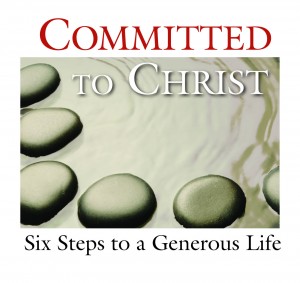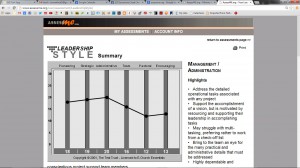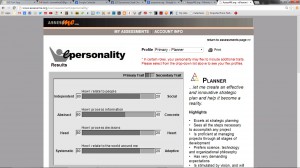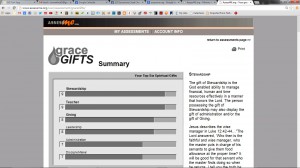
God on Film – Million Dollar Arm: How To Be Rich
Sycamore Creek Church
June 20/21, 2014
Tom Arthur
Peace friends!
Today I want to talk about how to be rich. Yes. I’m serious. I know you don’t hear about it very often in church, but I want to talk about how to make money. Of course your primary way of making money (unless you inherit it) is to get a job. I’ve got to admit, I’ve got a pretty good job. Being a United Methodist Pastor, I’m guaranteed an appointment in a church. So the last time I had to look for a job was back in graduate school.
My primary job in graduate school besides being a student was writing for scholarships. I spent a good portion of time researching and writing scholarships. But I also took a job one winter break at a local outdoor store. I worked wrapping presents that I wished I would be getting! I would always prime the tip jar with a couple of $10s and $20s. It worked!
Another set of jobs I had while in grad school was being a guinea pig. Literally. When you’re at a research university there are always researchers looking for people to test in various ways. The pay was dependent on the length and discomfort of the test. I got very good at looking quickly for what they were paying and weighing it against the inconvenience it would be for me. On the low end of things there were always researchers willing to pay you $5 to take a five minute test. Quick cash now! Then there were more advanced computer tests that would take twenty to sixty minutes. These would pay anywhere from $10 to $30. The place I made most of my money was doing MRI studies. One time I was in an MRI machine playing a video game for about ninety minutes. I made $150! There was one research study that looked good at first but not so good upon further examination. As I read the study it paid very well. $300 for about three hours of time. Sounds good. You got to watch old Duke Basketball games during the three hours. Still sounds good. The study was for a new experimental catheter! I passed.
3 Ways to Be Rich
Here at SCC we have a wide spectrum of people when it comes to making money in employment. We have some who are unemployable. Others are unemployed or underemployed. Then there are those who are well employed or exceptionally-well employed. I’d like to talk to each level of person today where they are that. So if at some point you find yourself listening to me teach about a situation you don’t find yourself in, then pray for the person who is in that situation.
So today I’d like to talk about three ways to be rich. Let’s dive in.
1. Make All You Can (Honestly)
We read in the beginning of the Bible that “the LORD God took the man and put him in the Garden of Eden to work it and take care of it” (Genesis 2:15 NIV). Notice that from the very beginning God intended work to be part of what we do in this life. We are to work the garden around us and take care of it. For some of us this might be a literal garden. For others the gardens around us might be teaching children, working on cars, practicing medicine, or just about any other kind of work you can imagine. I don’t say “any kind of work you can imagine” because I believe that God would have us work in such a way that takes care. We are to work and make all we can in an honest way.
So when it comes to work some among us are unemployable perhaps because of a disability. If you find yourself in this kind of a position, then the work you might do is to volunteer in as many ways as you can. Your disability may make you unemployable but it does not keep you from being able to contribute in some way to the community around you. Make all you can by volunteering at your church or one of your favorite local charities.
For those of us who are employable there are two ways we make all we can. We work and we invest. You can make all you can at a new job. Last week I visited Teri Sand who is the Business Services Team Leader at Michigan Works. She also happens to be a member of Redeemer Church on Holmes. I didn’t know this before I went in to visit with her. I was meeting with her because I wanted to understand better the job market that we find ourselves in. I learned many things that I didn’t know. I learned that Michigan Works is not just for the unemployed or those on welfare. It is essentially the Human Resources Department for all of Michigan Businesses. Teri’s job is to get to know the businesses in Michigan and to find people to fill those jobs! She offered me three tips for finding a job in today’s culture:
First, you must have computer skills. In the not too distant past, the way you would find a job was to send a generic resume to the companies you were interested in hiring or you’d cold-call on a business and drop off your resume. They’d look over your resume and see if you had the skills they needed. If you did, they’d hire you. Today almost all applications for jobs are submitted online, and many jobs are posted through social media. It is not uncommon to put in fifty applications online. Here’s the trick to applying online. You must customize your resume to each application. This is because companies use computer programs to sift through the applications they receive. If your resume does not include key words they are looking for, it won’t even be considered. What you need to do is look over the job description, circle everything that is honestly true of you and include those words and phrases in your resume submission. It’s a different world out there today and you have to have computer skills to navigate it.
Teri emphasized that while online job application is the norm, networking is also still the king. You have to let people know you are looking for a job. You have to think about who the people you know know. You ask your friends and acquaintances, “Do you know someone who could use my skills?” You need to expand your network. Attend career conferences and chamber events. And don’t forget to volunteer. Volunteering expands your network in ways that you might not anticipate.
The last tip that Teri told me was to remember that finding a job is a full-time job. If you’re looking for a forty-hour-a-week job, then plan on spending forty hours a week looking for it.
One last tip for those of you who might be beginning your work-life. The top three job markets in Michigan are Information Technology, Healthcare, and Manufacturing (check out this video on manufacturing).
So we’ve been looking at how you make all you can by finding a new job, but what if you like your job and you just want to make more money doing the same job. David Bach, author of Start Late Finish Rich, says, “The market doesn’t pay you what you’re worth—it pays you what it has to…and what you’re willing to accept.” Bach suggests going to your boss and asking what it would take to get a raise in the next six months. When you get an answer, then go do it!
Or maybe you like your job but you’re not making enough to pay off your debt ask quickly as you’d like. Make all you can by getting a second job. I actually have a second job. You may not know that, but I write for a youth devotional called Devo Zine. My wife got me this job. It is a humbling experience for me. I get paid $100 a devotion. Sarah gets paid $200! She is a full-time writer after all.
So you make all you can by working. But you also make all you can by investing, or making your money work for you. When it comes to investing there are three rules: invest early, invest automatically, and invest ethically.
Let’s take a look at the power of investing early. If you invest $3000 a year in a mutual fund that makes 10% (the historical average of the stock market) until you retire at age 65, here are three different scenarios you might follow:
- Age 15-19 (5 years) = $1,615,363.40
- Age 19-26 (8 years) = $1,552,739.35
- Age 27-65 (38 years) = $1,324,777.67
Did you catch that? Begin at age 15 and invest for only five years and you make $1.6 million. Begin at age 27 and invest for thirty-eight years and you make $1.3 million! What does that $1 million get you? “A $1 million nest egg will provide you with an income of roughly $80,000 a year for 20 years if you choose to keep the nest egg in an insured account paying 5% interest” (greenamerica.org). Invest early!
Second, invest automatically. Have your investments taken automatically out of your paycheck through electronic fund transfer, or through your company’s pension or retirement plans. You do this by following the 70% Rule. You live on 70%. What happened to the other 30%? Well, you gave 10% back to God. You saved 10%. And you invested 10% in retirement.
Lastly, you invest ethically. If you’re going to make money off of other companies then you might want to know something about what those companies are doing to make money. Are they employing children in sweat shops? Are they polluting the environment? You can learn more at www.greenamerica.org/socialinvesting. Sarah and I have always invested in socially screened mutual funds. We find Calvert, Pax, and Domini to be fruitful companies investing and managing money in ethical ways. You may have heard that socially screened investments make less money. This may or may not be true. If it is true, then I go back to the question: how are they making money and do you want to make money in that way? But it is not always true. Domini is a socially screened index fund. Last year it beat the S&P500.
We’ve covered a lot of ground so far about how to be rich. Let’s briefly review where we’ve been: You make all you can in honest ways by working and investing. Do you need to find a new job? Do you need to ask how to make more at your current job? Do you need to get a second job? When it comes to investing are you investing early, automatically, and ethically? We make all we can because God has put us on this earth to work and take care of it. But what do we do with that money that we make?
2. Save All You Can (Spend Less, Save More)
A second way that you can be rich is to save all you can. In other words, spend less and save more. The wisdom of the Proverbs says:
Those who love pleasure become poor;
those who love wine and luxury will never be rich.
~Proverbs 21:17 NLT
The first way you save is to build an emergency fund. I asked my friends on Facebook about times they found an emergency fund helpful. I heard stories about car bills, tree roots growing into pipes, furnaces breaking down, driving cars into ditches, a well pump going out, a visit to an ER and unemployment.
One experience I know more fully is the experience of Tabitha Martin, a member of our church. Tabitha lived with Sarah and me for three years while she was getting back on her feet. She saved up $3000 before she was ready to move out. The week before she moved out she was in an accident and while she was okay, her car was totaled. Because she had an emergency fund she was able to buy a new car, make a deposit on her apartment, and still have $1000 left. She may not have been rich by many people’s standards, but in that moment she had more resources than she had ever had to meet the challenges that life threw her way.
So how do you save all you can as the summer approaches us? I asked my friends on Facebook for suggestions on living simply in the summer. Here’s what they said:
- Turn AC down and sleep in the basement.
- Buy ice cream at the grocery store rather than the ice cream store.
- Grow a garden.
- Buy veggies at the farmers market and if you have a bridge card, you get Double Up Food Bucks (two dollars for every dollar you spend!).
- Cancel cable and get outside.
- Instead of seeing movies, shopping or otherwise paying for your entertainment, go to free outdoor concerts, “movie in the park” nights, feed the ducks, visit new playgrounds, play whatever kind of ball you like best, etc.
- Make a picnic and take it somewhere romantic instead of going out for dinner.
- Cancel your gym membership and run/bike/swim for your workout instead.
- Instead of taking a vacation, take a staycation. You’ll spend less and be more refreshed when it’s done.
3. Give All You Can (Give the Rest Away)
So you’ve made all you can and saved all you can, what do you do with the rest? You give as much away as you can!
We find this wisdom in the psalms:
If riches increase, do not set your heart on them.
~Psalm 62:10 NRSV
There is a pitfall if you make all you can and save all you can and build wealth. John Wesley, the founder of the Methodist movement highlights this pitfall saying:
Wherever true Christianity spreads, it must cause diligence and frugality, which, in the natural course of things, must beget riches! And riches naturally beget pride, love of the world, and every temper that is destructive of Christianity…Do you gain all you can, and save all you can? Then you must, in the nature of things, grow rich. Then if you have any desire to escape the damnation of hell, give all you can; otherwise I can have no more hope of your salvation, than of that of Judas Iscariot.
~John Wesley (18th Century Founder of the Methodist Movement)
As your wealth and riches increase, don’t miss the really important things in life. Give money back to God. If you began with 10%, then become an extravagant giver and give 15% or 20% or perhaps God will bless you to give away as much as you live on. Give money to your church. Give money to charities. Give money to the needs that you come across. Make all you can and save all you can so that you can have the joy of giving all you can away!
Recently our church sent you home with baby bottles to fill up with loose change lying around your house. This loose change was going to be given to the Lansing Area Pregnancy Services. I was a little surprised by the results. Thirty-nine bottles were brought in with $651.60! This mission of giving was organized by the knitting group in our church. The knitting group also made and gave 14 blankets, 17 hats & 6 hat/booties sets. Wow! All that just from loose change lying around the house.
Friends, the world doesn’t really care how big your bank account is. For our world to experience the love of God, they need to see that we care.
Are becoming rich by making all you can, saving all you can, and giving all you can?
Prayer
God, all that I have is yours. Use my time and my talents to work in this world and take care of it. As I make money, let me save all I can by living simply. As I live simply, let me then give all I can so that world will see your love. Amen.
Questions for Small Groups
Each week we provide questions for small groups that meet regularly to discuss today’s message. Sign-ups for Small Groups happen in January, May, and September. Want more info? Email Mark Aupperlee – m_aupperlee@hotmail.com.
- What’s your job search experience? Where do you find yourself: unemployable, unemployed, underemployed, well-employed, very-well-employed?
- Read Genesis 2:15. What would it mean for you for work to be a God-given command? Read Proverbs 21:17. Where do you find yourself indulging a bit too much? Read Psalm 62:10. How attached is your heart to growing wealth?
- What do you need to do most? Make all you can? Save all you can? Give all you can? How will you do it? How can we pray for you?






Recent Comments